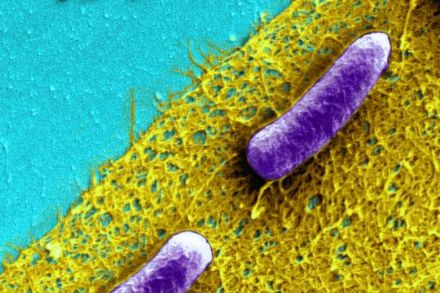-
Tips for becoming a good boxer - November 6, 2020
-
7 expert tips for making your hens night a memorable one - November 6, 2020
-
5 reasons to host your Christmas party on a cruise boat - November 6, 2020
-
What to do when you’re charged with a crime - November 6, 2020
-
Should you get one or multiple dogs? Here’s all you need to know - November 3, 2020
-
A Guide: How to Build Your Very Own Magic Mirror - February 14, 2019
-
Our Top Inspirational Baseball Stars - November 24, 2018
-
Five Tech Tools That Will Help You Turn Your Blog into a Business - November 24, 2018
-
How to Indulge on Vacation without Expanding Your Waist - November 9, 2018
-
5 Strategies for Businesses to Appeal to Today’s Increasingly Mobile-Crazed Customers - November 9, 2018
First Drug-Resistant “Superbug” Could Be End of Antibiotic Era
It was the first time scientists and public health officials identified a strain of bacteria in E. coli resistant to colistin, a long-considered “last resort” drug for patients with multi-drug resistant infections, HHS reported.
Advertisement
The findings were published online Thursday in Antimicrobial Agents and Chemotherapy.
A strain of E.coli bacteria, which contained a mutated gene known as MCR-1 have been found in the urine of a 49-year-old Pennsylvania woman. Antibiotics have been used for about 85 years and in the first 10 years of use, the bacteria were becoming resistant.
The World Health Organization (WHO) states that antibiotic resistance is “one of the biggest threats to global health today”. Tests confirming the woman’s infection were done by Walter Reed National Military Medical Center researchers, who reported on the case.
The Center for Disease Control and Prevention director Dr. Tom Frieden said if such a super-superbug spread, it would take humanity back to the time when there were no antibiotics. The mcr-1 gene, the DNA that makes bacteria colistin-resistant, can rapidly spread between species.
The CDC said it is looking for other possible cases in the clinic the patient visited, and they, along with the Pennsylvania State Health Department, have mobilized to investigate the source of the bacteria.
“It basically shows us that the end of the road isn’t very far away for antibiotics – that we may be in a situation where we have patients in our intensive care units, or patients getting urinary-tract infections for which we do not have antibiotics”, Frieden told The Washington Post.
“The more we look at drug resistance, the more concerned we are”, Frieden added. The woman did not travel outside the USA within past five months. More than half of all hospitalized patients will get an antibiotic at some point during their stay.
Dr. Burgin said, “This particular bacteria seems to be resistant to all known antibiotics that we have available to us so since we have not had any new drugs developed in several years we have no defense against it”.
Tom Frieden said “The medicine cabinet is empty for some patients”.
Advertisement
“The work also highlights the promiscuity of bacteria, which are able to quickly and easily share resistance mechanisms between species”. “We need to do a very comprehensive job protecting antibiotics so that we can have them and our children can have them”.





























